Investigating tourism at Hanifaru Bay marine protected area, Maldives
2010
Katie Brooks (MSc Marine Environmental Management - University of York)
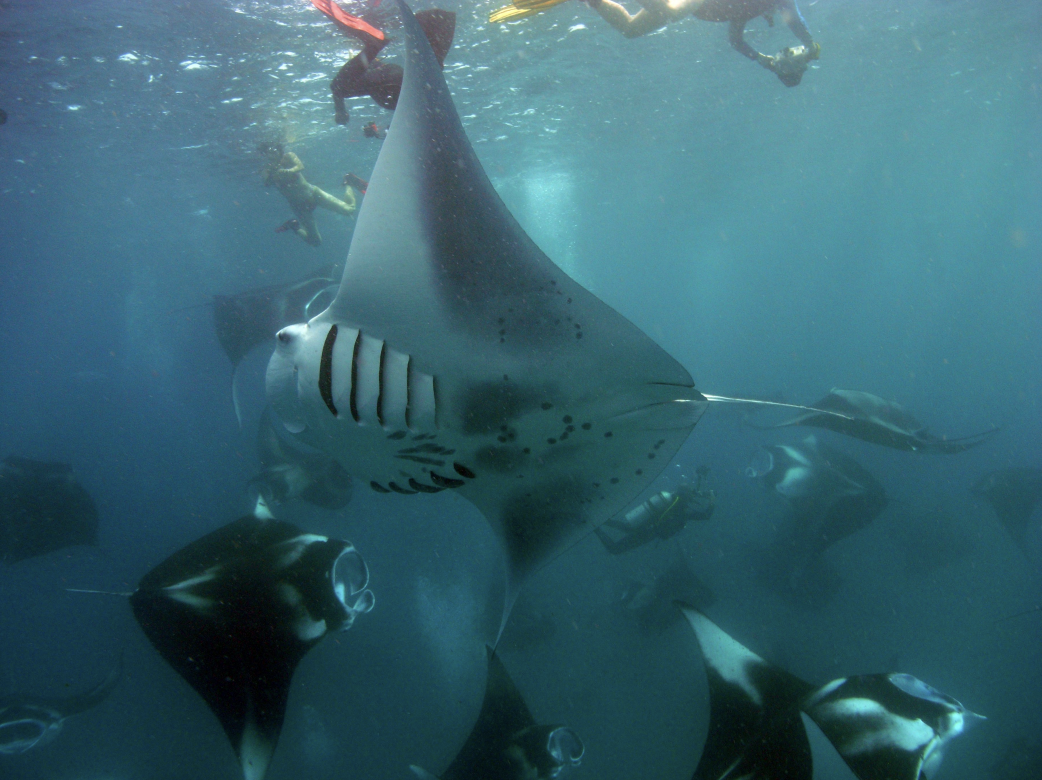
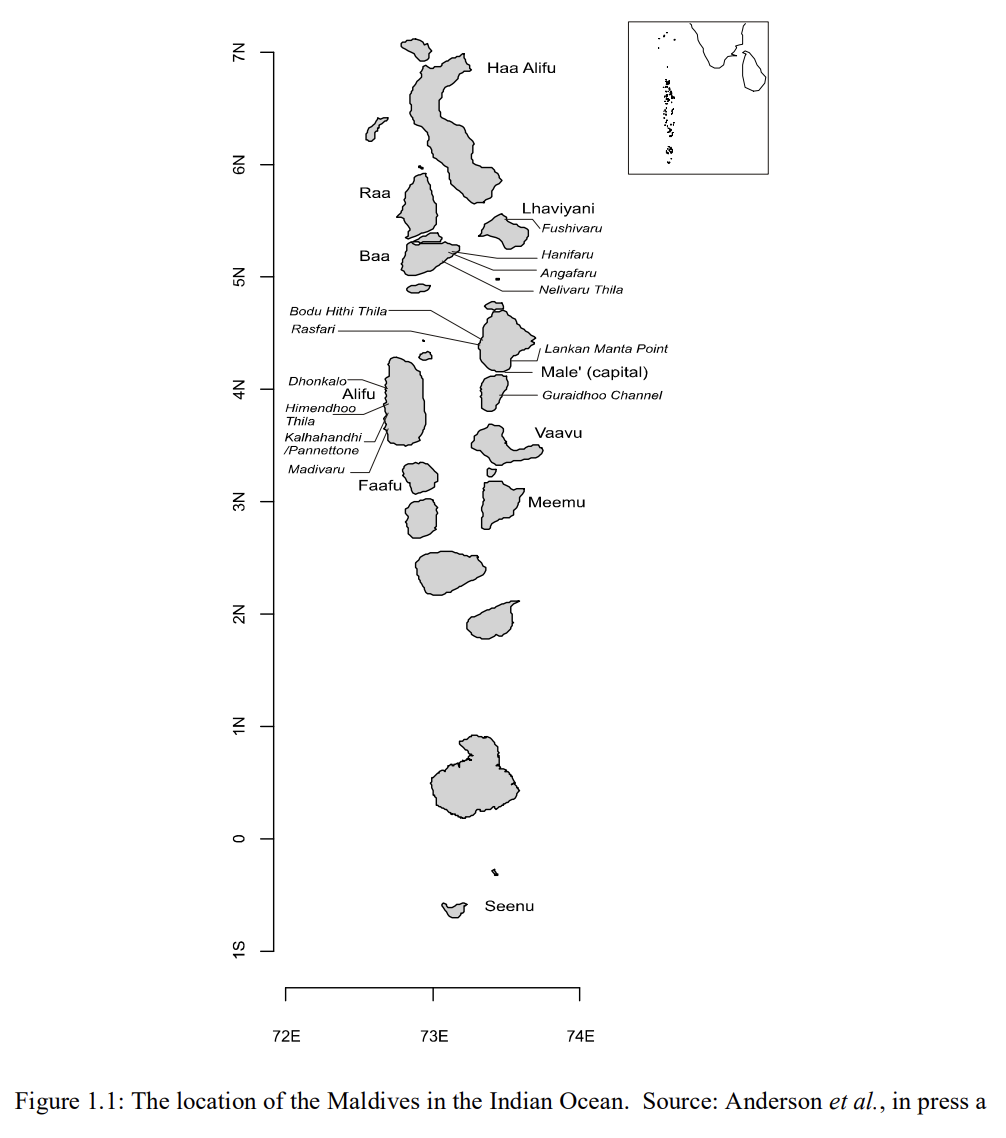
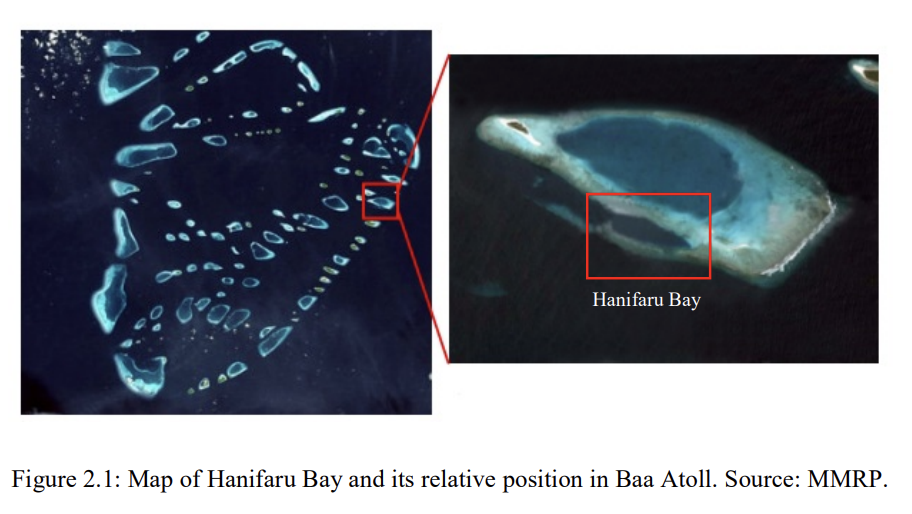
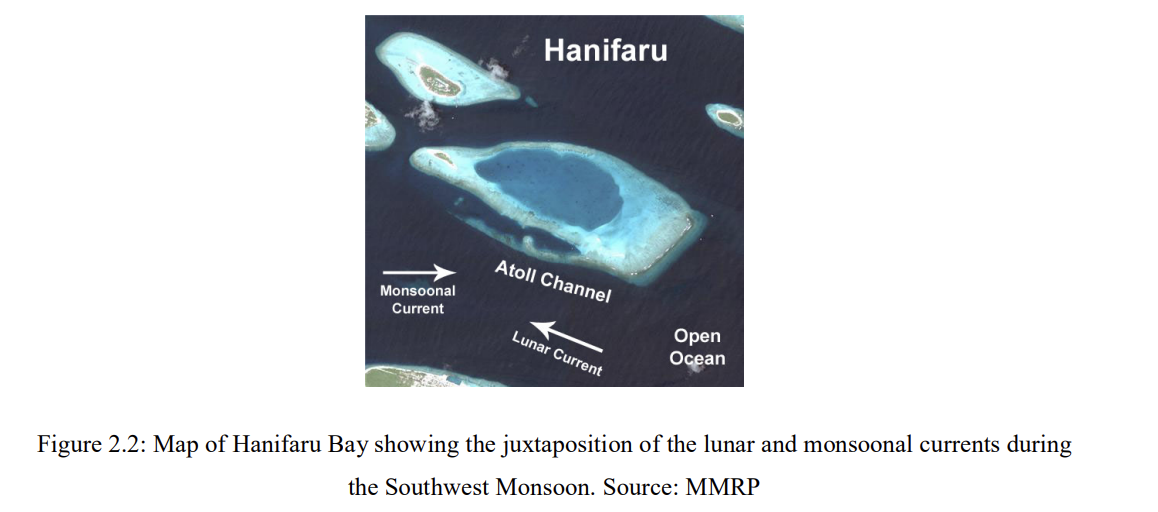
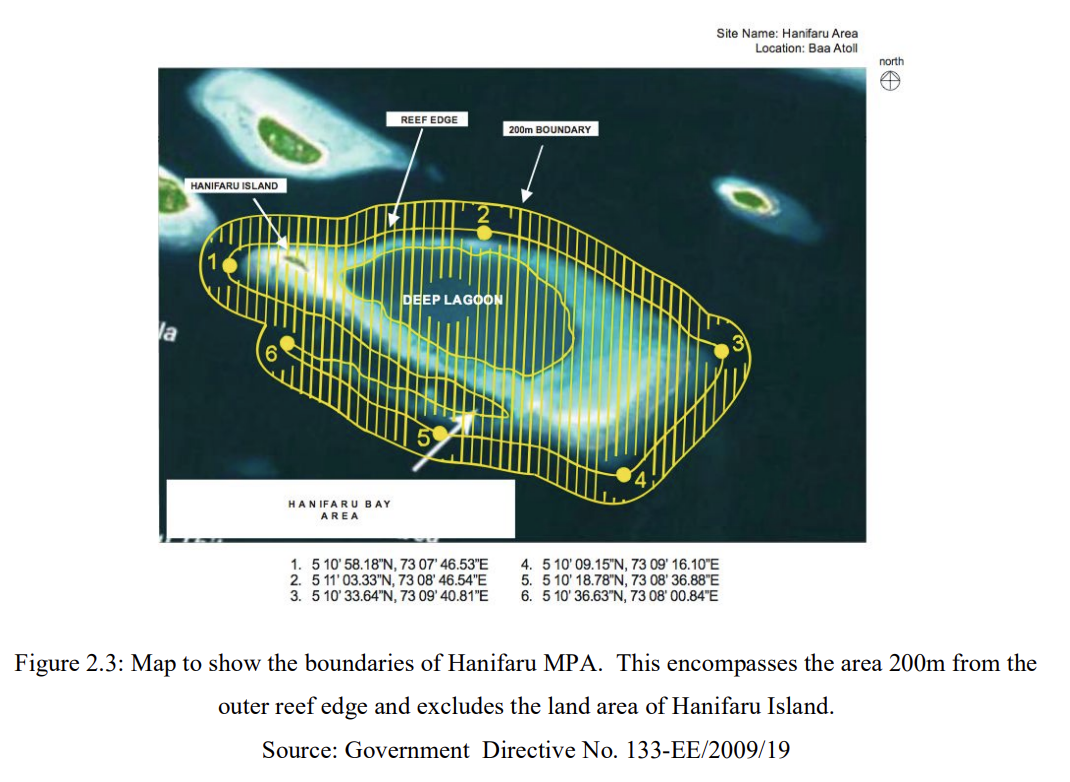
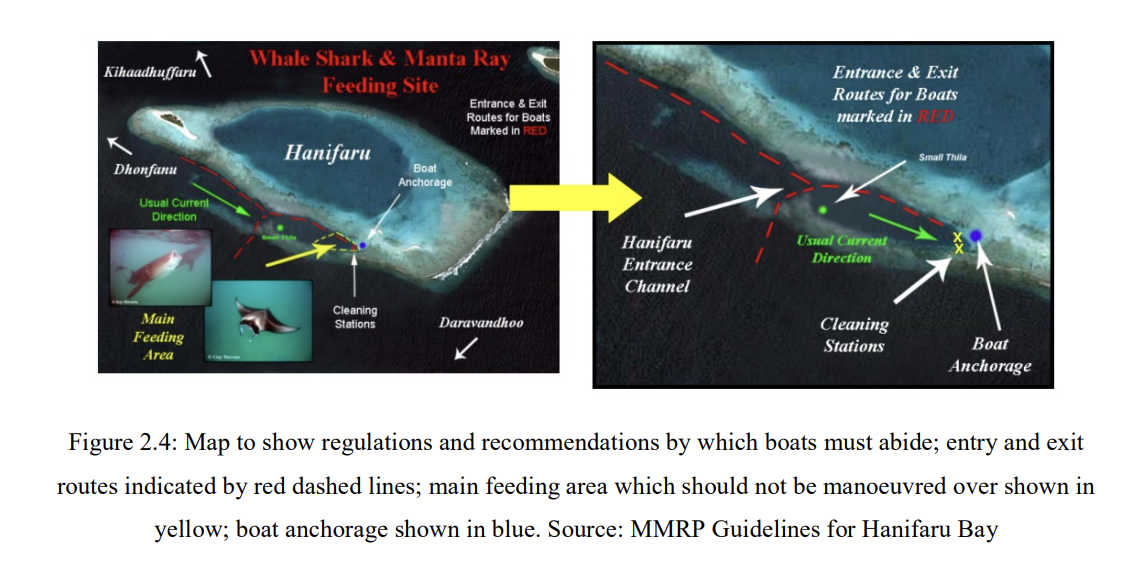
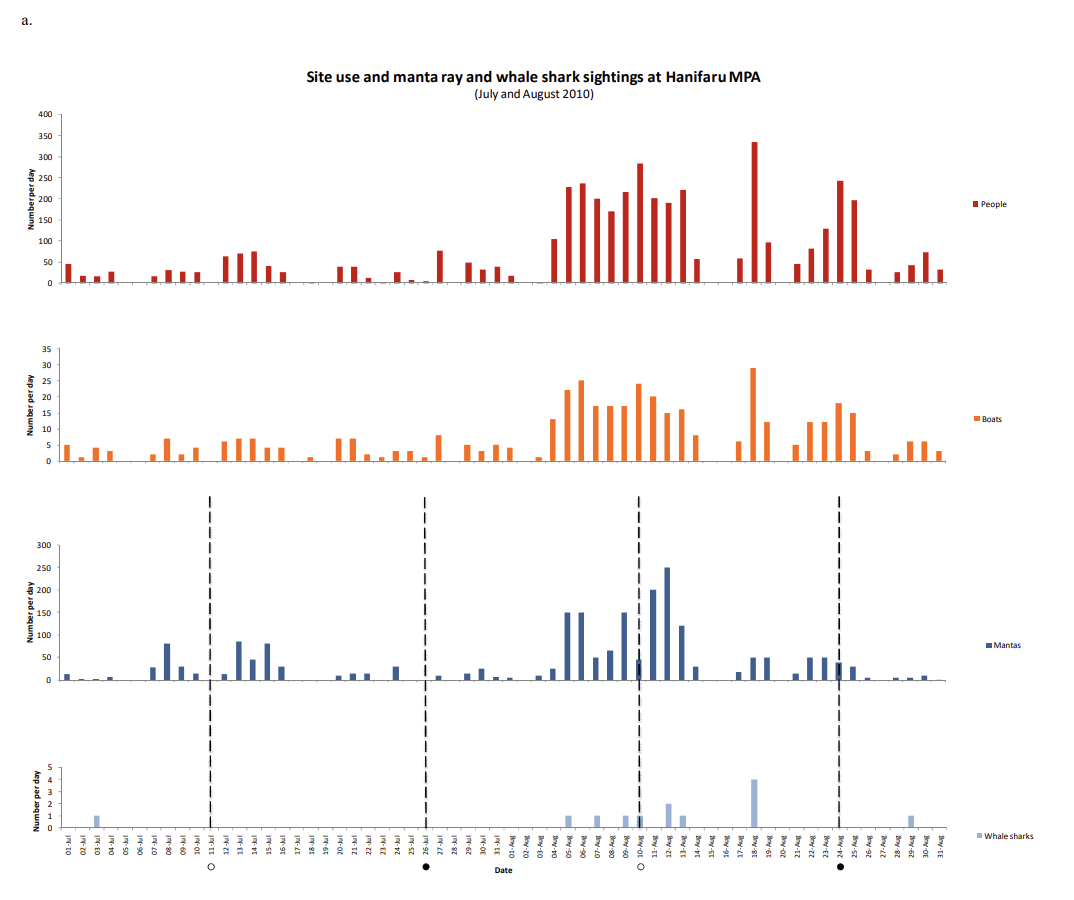
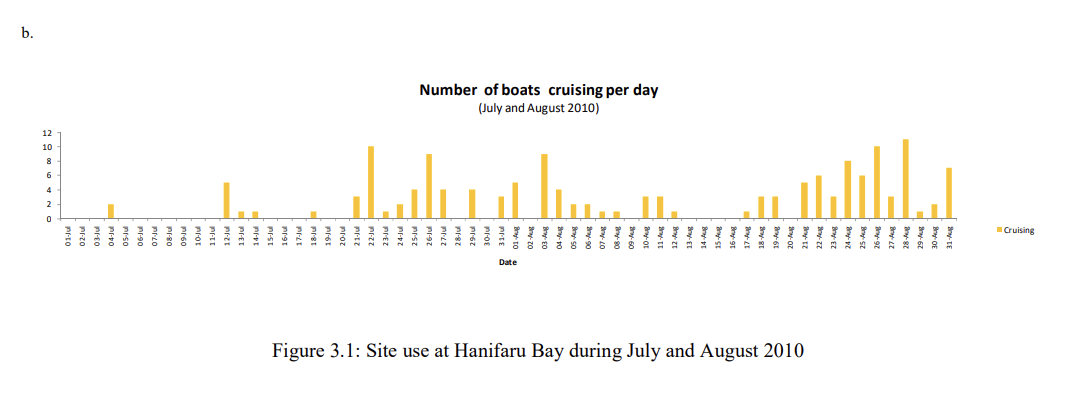
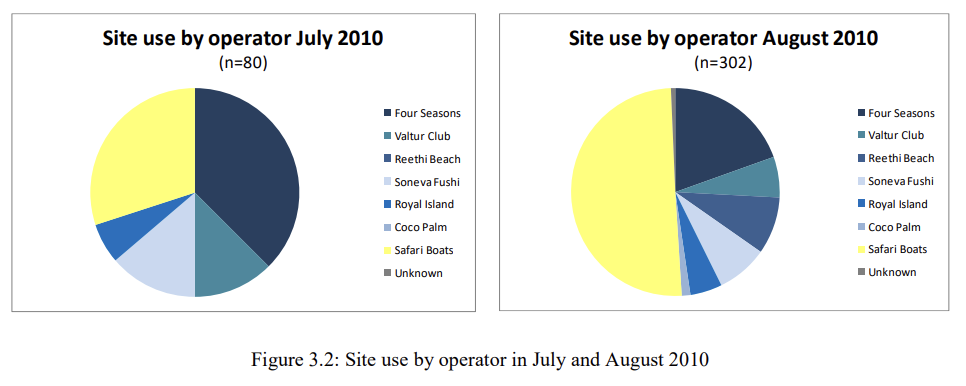
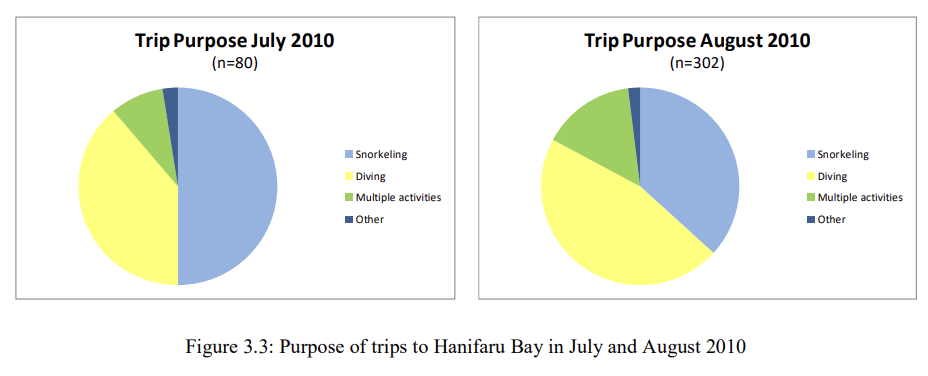
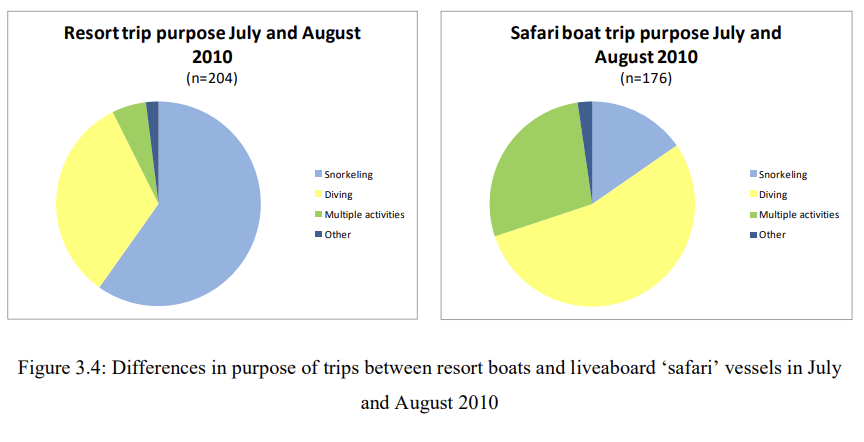
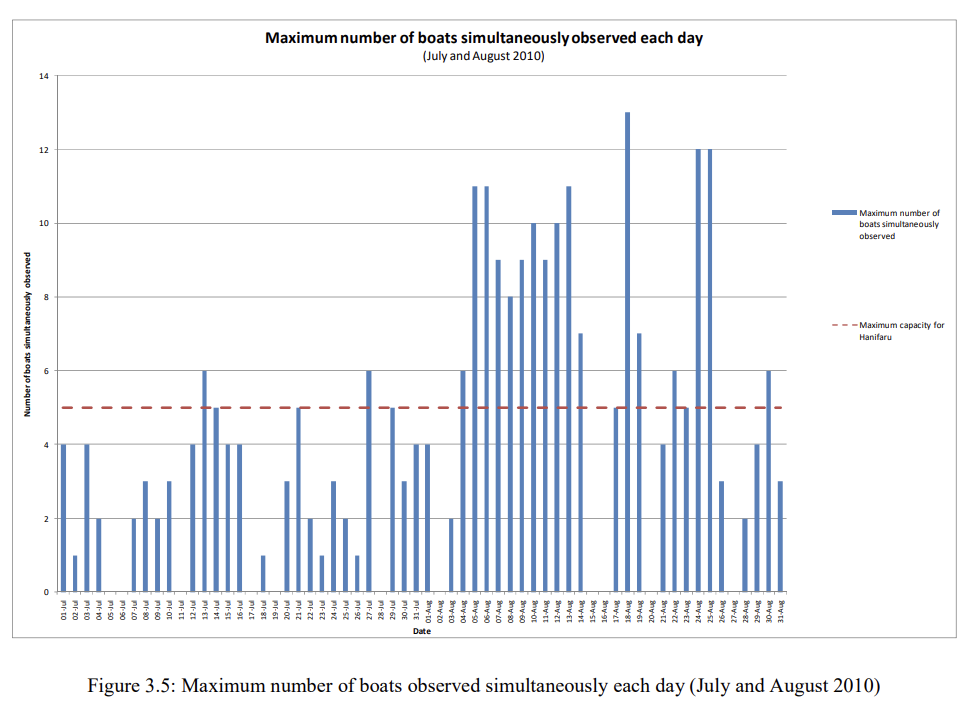
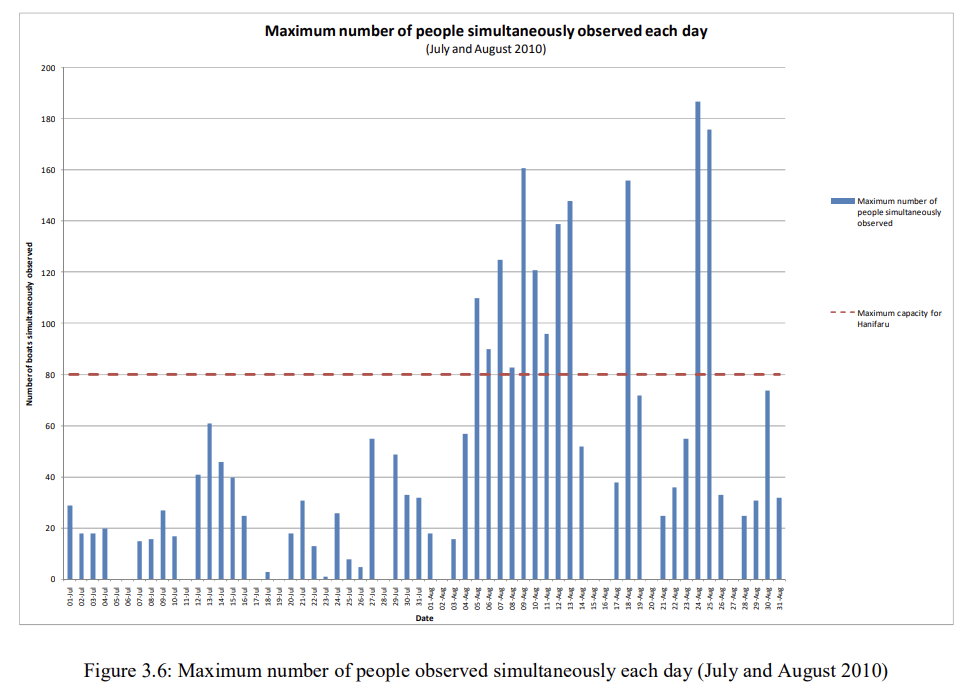
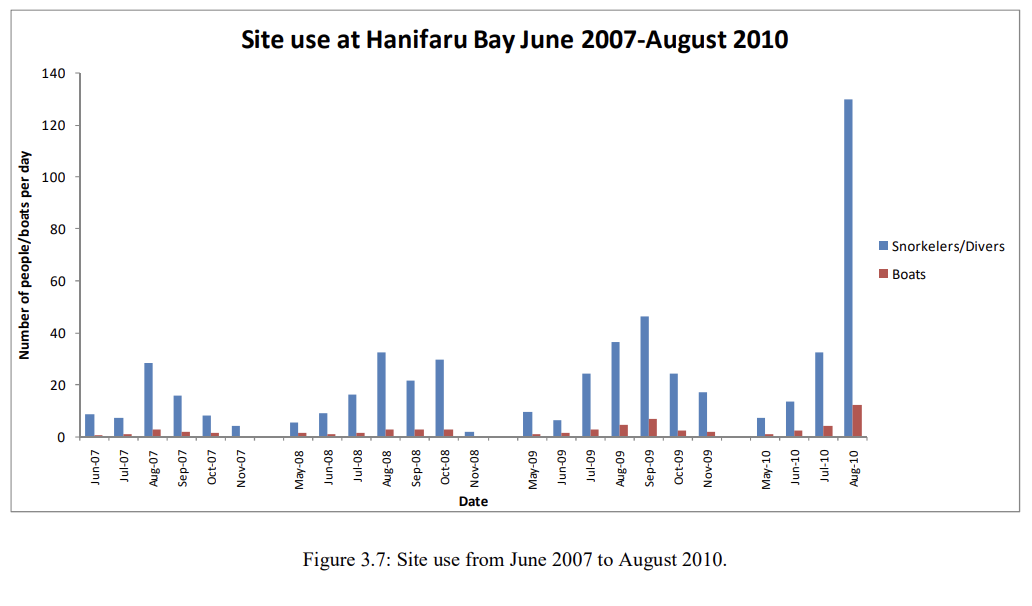
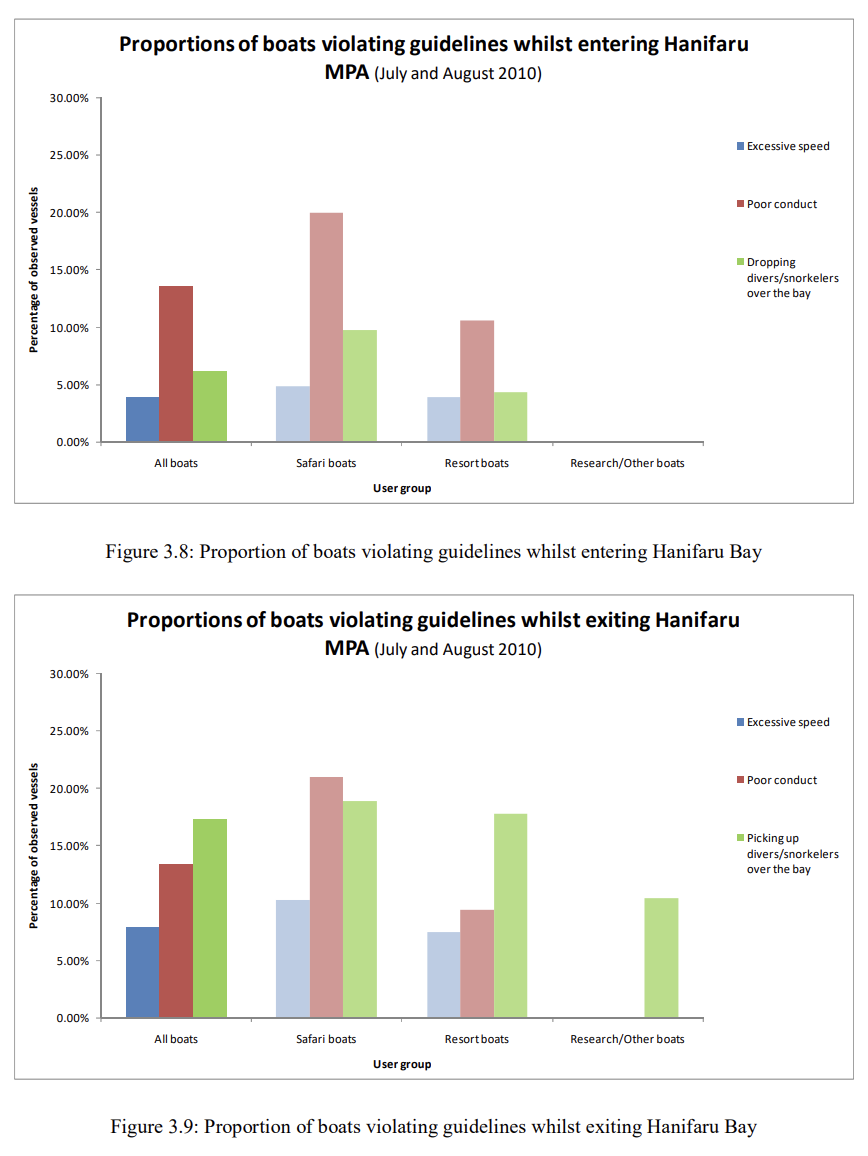
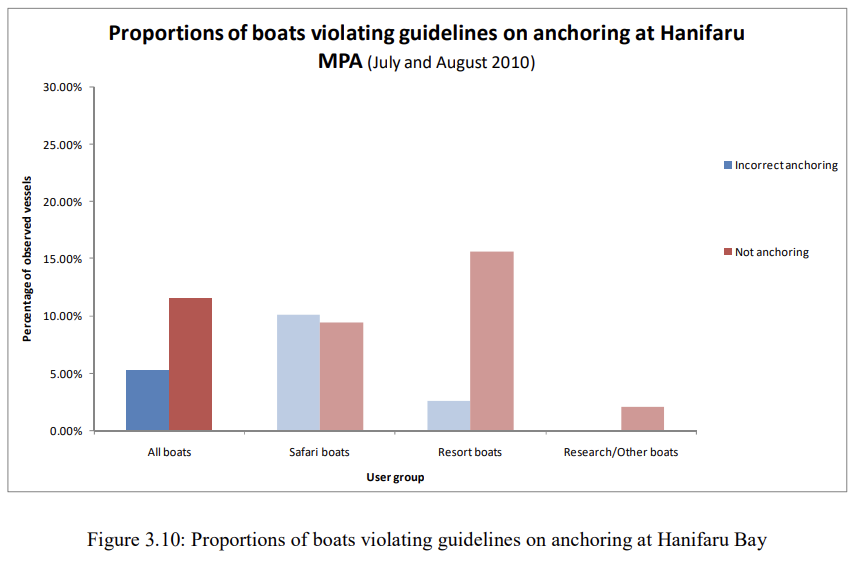
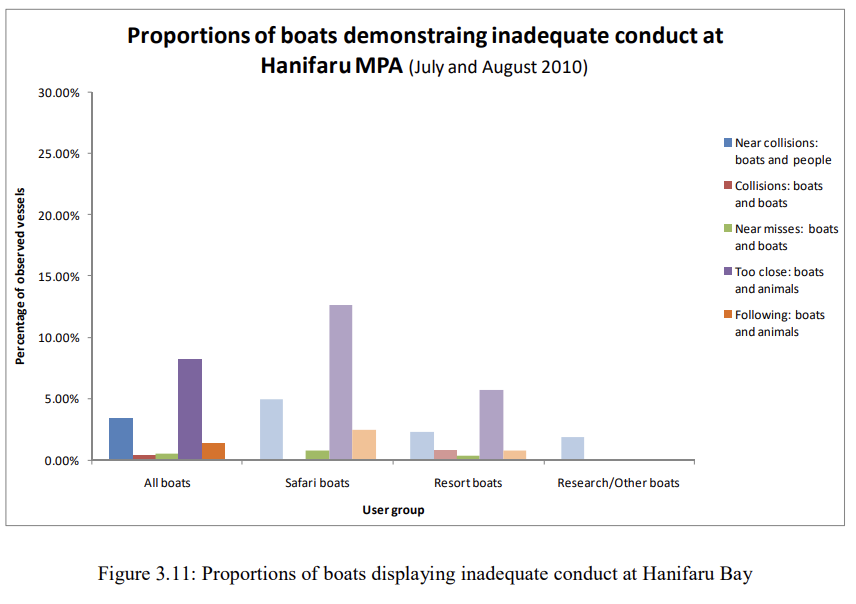
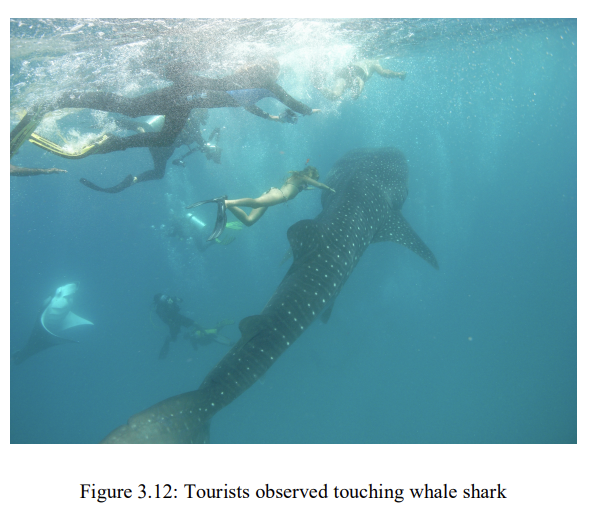
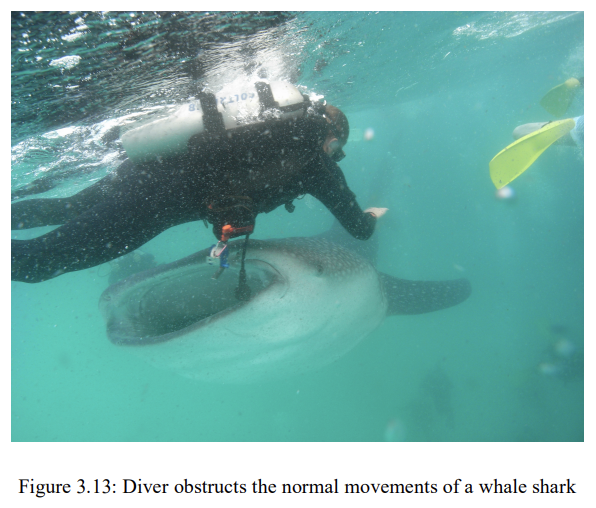
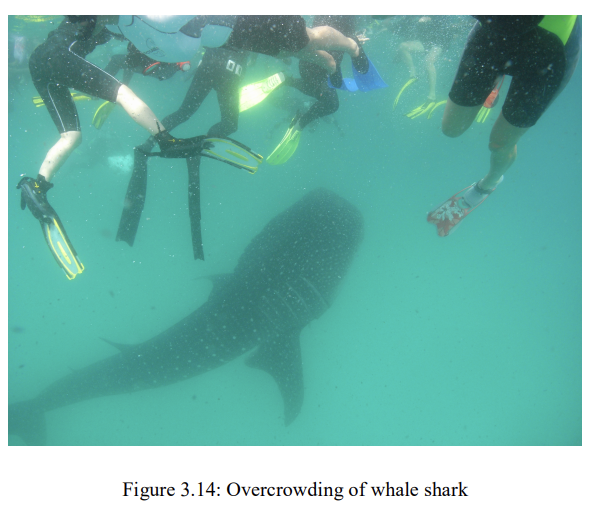
Summary: Hanifaru Bay in the Maldives is renowned for manta ray and whale shark encounters, designated a marine protected area. However, a lack of on-site monitoring and enforcement has led to overcrowding, harassment of animals, and safety risks. Observations from July and August 2010 showed a 232.6% increase in daily visitors compared to the previous year. This study emphasizes the need for improved regulations and enforcement to safeguard the site's future despite its protected status.
Abstract
“Hanifaru Bay in the Republic of Maldives is gaining an international reputation as one of the best places in the world to experience swimming with manta rays (Manta alfredi) and whale sharks (Rhincodon typus). Its importance has been recognised by the Maldivian government and the site has recently been designated as a marine protected area (MPA) with legislation in place to govern the manner in which it should be used. However, despite its legal status there is no onsite government presence to monitor the intensity of site use or to enforce regulations in place. Here results are presented from two months of observation of tourist activity at Hanifaru. During July and August 2010, 430 boats and 4327 people were observed to use the site, this represents an increase of 232.6% in the number of people using the site per day compared to the same period last year. Compliance to legislation governing site capacity was regularly observed to be ignored leading to instances of severe overcrowding both by boats and in the water leading to significant levels of harassment to the animals. Moreover, a number of the regulations in place were found to be ill-suited to the unique nature of the site and, if complied with, might risk the safety of all users of the site. Whilst the MPA designation of Hanifaru provides an excellent foundation for ongoing management, this study emphasises the urgent need for relevant regulations and onsite enforcement to be implemented in order to ensure the future of the site.”
Author Affiliations
University of York
The Manta Trust
